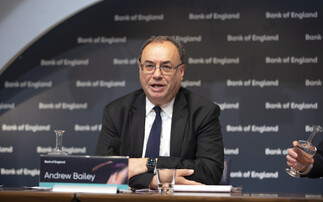UK Prime Minister Theresa May will formally invoke Article 50 on Wednesday 29 March, beginning the process of the UK's departure from the European Union following last June's referendum.
The move comes nine months after the UK voted 51.9% against 48.1% to leave the EU, and begins a two-year process of negotiations. Under Article 50, talks around the UK's departure cannot begin until the country has formally alerted the EU to its departure. According to the Financial Times, the UK's EU ambassador Tim Barrow informed the office of the EU Council president on Monday morning that the formal notification would be delivered on 29 March. However, Downing Street reportedly declined to comment on whether the letter would contain any details of negotiations, although May is exp...
To continue reading this article...
Join Professional Adviser for free
- Unlimited access to real-time news, industry insights and market intelligence
- Stay ahead of the curve with spotlights on emerging trends and technologies
- Receive breaking news stories straight to your inbox in the daily newsletters
- Make smart business decisions with the latest developments in regulation, investing retirement and protection
- Members-only access to the editor’s weekly Friday commentary
- Be the first to hear about our events and awards programmes









